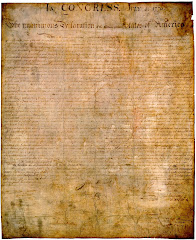Increasingly opposed to the Vietnam War, Robert F. Kennedy struggled over whether he should challenge his party’s incumbent president, Lyndon Johnson, in 1968. His younger brother, Teddy, was against it. His wife, Ethel, urged him on. Many feared he would be assassinated, like the older brother he mourned.
by Thurston Clarke | Vanity Fair | June 2008

Bobby Kennedy campaigns in Indianapolis during May of 1968, with various aides and friends, including (behind and left of Kennedy) former prizefighter Tony Zale and (right of Kennedy) N.F.L. stars Lamar Lundy, Rosey Grier, and Deacon Jones. Photographs by Bill Eppridge.
Text excerpted from The Last Campaign: Robert F. Kennedy and 82 Days That Inspired America by Thurston Clarke, to be published this month by Henry Holt and Company, L.L.C.; © 2008 by the author.
Photographs excerpted from A Time It Was: Bobby Kennedy in the Sixties; photographs and text by Bill Eppridge; introduction by Pete Hamill; to be published this month by Abrams; © 2008 by Bill Eppridge.
Two months after John F. Kennedy’s assassination, Robert Kennedy traveled to Asia on an itinerary that had originally been planned for J.F.K. During the trip, he visited a girls’ school in the Philippines where the students sang a song they had composed to honor his brother. As he drove away with CBS cameraman Walter Dombrow, he clenched his hands so tightly that they turned white, and tears rolled down his cheeks. He shook his head, signaling that Dombrow should remain silent. Finally he said in a choked voice, “They would have loved my brother.” Dombrow put his arm around him and said, “Bob, you’re going to have to carry on for him.” Kennedy stared straight ahead for half a minute before turning to Dombrow and nodding. It was then, Dombrow said, that he knew Bobby would run for president and realized how much he loved him.
A deep, black grief gripped Robert Kennedy in the months following his brother’s assassination. He lost weight, fell into melancholy silences, wore his brother’s clothes, smoked the cigars his brother had liked, and imitated his mannerisms. Eventually his grief went underground, but it sometimes erupted in geysers of tears, as had happened in the Philippines. He wept after seeing a photograph of his late brother in the office of a former aide, wept when asked to comment on the Warren Commission Report, and wept after eulogizing J.F.K. at the 1964 Democratic convention with a quotation from Shakespeare’s Romeo and Juliet: “When he shall die, take him and cut him out in little stars, and he shall make the face of heaven so fine that all the world will be in love with night and pay no worship to the garish sun.”
Kennedy was still mourning his brother and endeavoring to live for him when he ran for the U.S. Senate from New York in the autumn of 1964, telling a friend that he wanted to ensure that the hopes J.F.K. had kindled around the world would not die, and saying in his victory statement that he had won “an overwhelming mandate to continue the policies” of President Kennedy. And at first it appeared that his 1968 presidential campaign—challenging his brother’s successor, Lyndon Johnson, for the Democratic Party’s nomination—would be another homage to J.F.K. Bobby announced his candidacy on March 16 in the caucus room of the Old Senate Office Building, the room that his brother had used for the same purpose. He stood in the same spot and began with the same sentence: “I am announcing today my candidacy for the presidency of the United States.” After saying that he was running to “close the gaps that now exist between black and white, between rich and poor, between young and old,” he concluded with a passage that made him sound like his brother, perhaps because it had been contributed in part by Ted Sorensen, who had been his brother’s speechwriter: “I do not lightly dismiss the dangers and the difficulties of challenging an incumbent President. But these are not ordinary times and this is not an ordinary election. At stake is not simply the leadership of our party and even our country. It is our right to the moral leadership of this planet.”
Read more...





